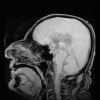After trying out pyritinol during 3 days and then left it, I've been experiencing a withdrawal syndrome whcih includes :
- Insomnia (I can't sleep at all, benzos and antihistamines do work but with them my sleep is interrupted, I wake up 3h after then sleep again) it's been 3 days it's ongoing, I hope it resolves soon
- Tunnel vision, with pyritinol I experienced a great vision enhancement, after withdrawing my vision wasn't like before, it's tunnel like, my peripheral vision seems to be impaired
- Constant elevated heart rate at 90bpm (normal values range from 65-74bpm)
After extensive research, I guess I managed to understand the issue :
- Pyritinol is involved in cholinergic pathways, many studies say it does increase acetylcholine levels dramatically
- High acetylcholine is related with slow heart rate, high acetylcholine inhibits epinephrine and dopamine when low acetylcholine lets epinephrine fasten heart rate
- Low acetylcholine includes symptoms such as insomnia (this seems to happen to patient after an heart attack) but also symptoms such as tunnel vision
Therefore the problem seems to be in acetylcholine deficiency, my pyritinol dosage (600mg) increased acetylcholine a lot and downregulated receptors. Therefore there is a withdrawal symptom that cannot be ignored.
What I will be trying according to my research :
- Take a lot of soy lecithin then decrease amount over the week (I will check my heart rate and see what happens)
- If that doesn't work, I would take pyritinol again at lower doses in order to alleviate withdrawal
- If the two don't work, I shall use caffeine which is a muscarinic acetylcholine inhibitor and therefore increases acetylcholine receptors density, this might be a good solution (however piracetam didn't work)
I don't know if it's because of my own biochemistry, but I suggest those trying pyritinol to start with low dosage (200mg) and not go 600-800mg as I wrongfully did.
Taking it in the morning is important to avoid insomnia and it is important to not go cold turkey to not experience an acetylcholine deficiency.
Took soy lecithin one hour ago :
Before my HR was 90bpm (20h40), now it is 87BPM (21h40), not very significant therefore I cannot draw any conclusion.
In 30mins I will be taking half tbsp of acetylcholine and see how it goes
UPDATE : Just took a second dose
HR at 22h20 => 82-83bpm, results start to become significant and my theory seems to be true
Edited by renfr, 19 October 2012 - 08:31 PM.





















































